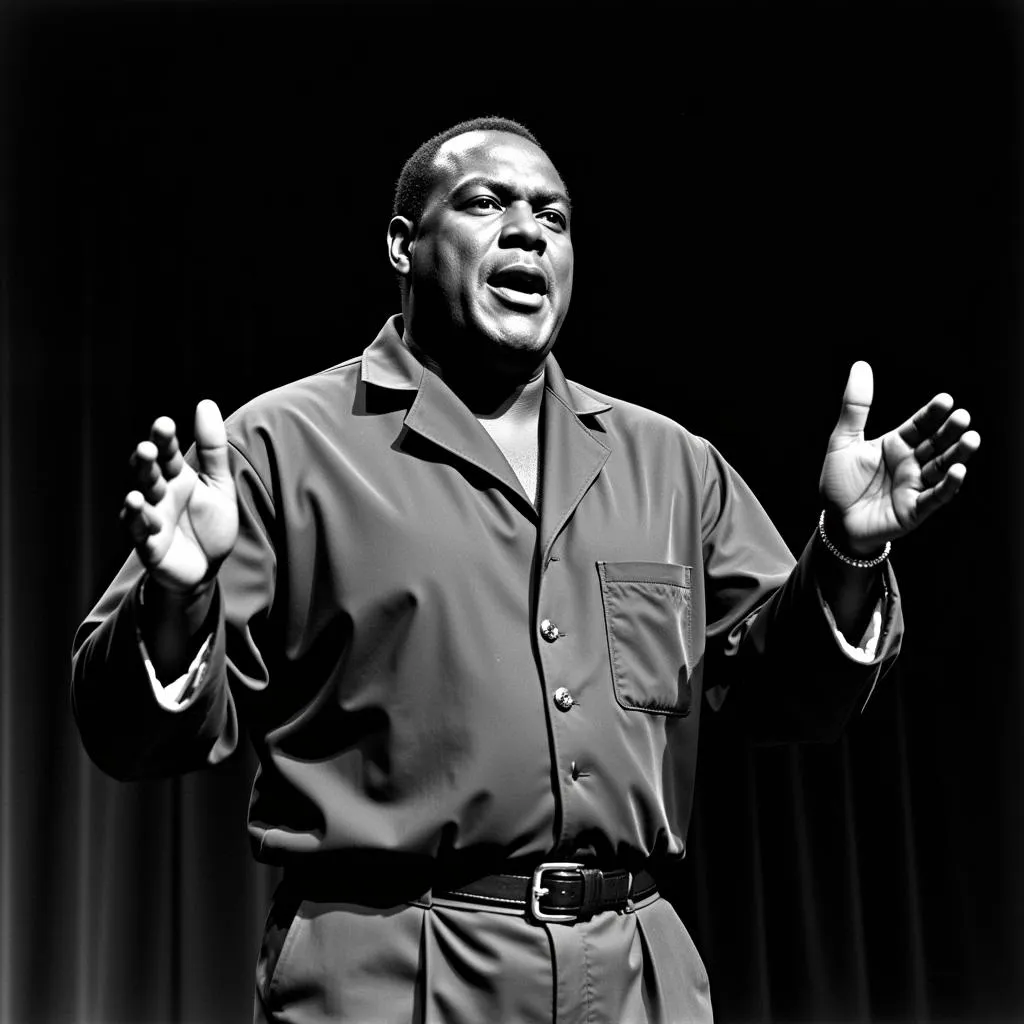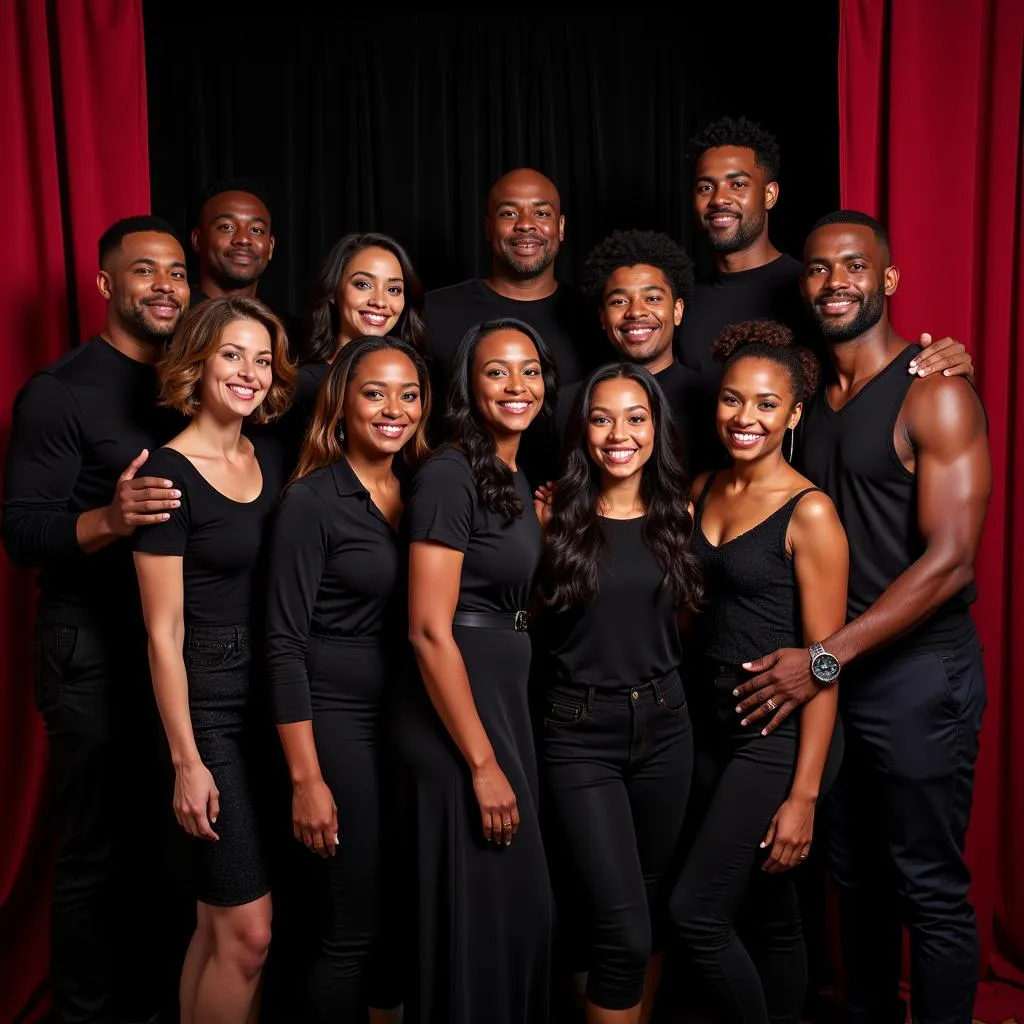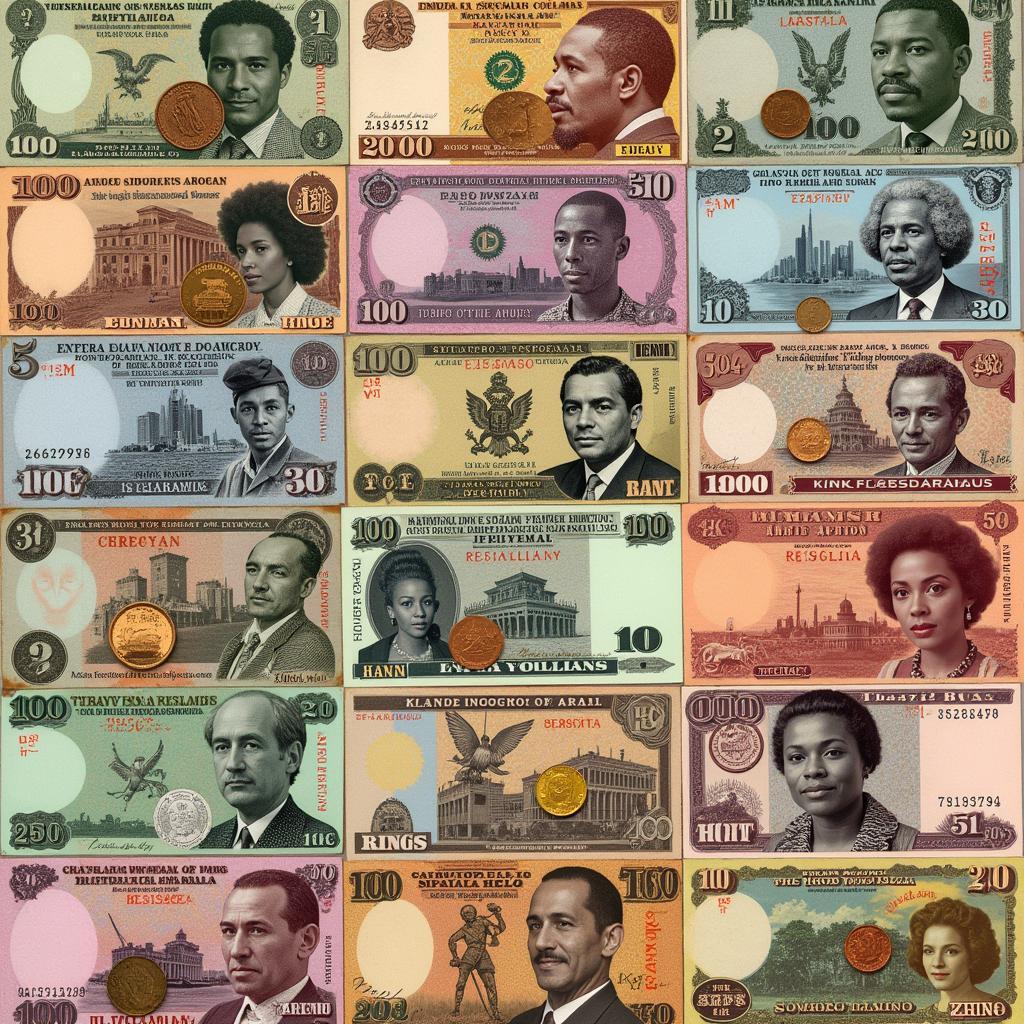A Legacy on Stage: Exploring the World of African American Theatre Actors
From the groundbreaking works of the Harlem Renaissance to the bright lights of Broadway, African American Theatre Actors have played a pivotal role in shaping the narrative of American theatre. They have faced immense challenges, broken down barriers, and paved the way for generations to come. Their stories are not just about entertainment; they are a testament to the resilience, talent, and enduring spirit of Black artists.
A Rich History of Resilience and Revolution
The history of African American theatre is deeply intertwined with the history of Black people in America. From the earliest days of slavery, when performance was a form of resistance and cultural preservation, to the rise of Black theatre companies in the early 20th century, Black artists have used the stage to tell their stories, challenge stereotypes, and advocate for social change.
One of the most significant periods in African American theatre history was the Harlem Renaissance. This cultural explosion in the 1920s and 1930s saw a flourishing of Black art, music, and literature. Theatre played a crucial role, with playwrights like Langston Hughes, Zora Neale Hurston, and Lorraine Hansberry giving voice to the Black experience. Actors like Paul Robeson and Ethel Waters became stars, captivating audiences with their talent and charisma.
 Paul Robeson performing on stage
Paul Robeson performing on stage
Breaking Barriers and Creating Opportunities
Despite the successes of the Harlem Renaissance, African American theatre actors continued to face discrimination and limited opportunities. They were often relegated to stereotypical roles or denied opportunities to perform on the main stages. However, these challenges only fueled their determination to create their own spaces and tell their own stories.
In the post-Civil Rights era, Black theatre experienced a resurgence. Playwrights like August Wilson and Suzan-Lori Parks explored complex themes of race, identity, and social justice. Actors like James Earl Jones, Cicely Tyson, and Denzel Washington rose to prominence, shattering stereotypes and becoming household names. Their work helped to redefine what it meant to be a Black actor in America.
The influence of African American theatre actors extends far beyond the stage. They have made significant contributions to film, television, and other forms of entertainment. Their work has not only entertained but also educated, inspired, and challenged audiences around the world.
The Future of African American Theatre
Today, African American theatre is thriving. A new generation of talented actors, directors, and playwrights are pushing the boundaries of storytelling and challenging audiences in new and exciting ways. They are building on the legacy of those who came before them, continuing to use theatre as a platform for social commentary, artistic expression, and cultural celebration.
 A diverse group of African American theatre actors posing for a photo
A diverse group of African American theatre actors posing for a photo
From the small, independent theatres to the grand stages of Broadway, African American theatre actors continue to play a vital role in shaping the American theatrical landscape. Their stories are our stories, their struggles are our struggles, and their triumphs are our triumphs. By supporting and celebrating their work, we not only honor their legacy but also ensure that their voices continue to be heard for generations to come.
FAQ
-
Who are some of the most famous African American theatre actors? Some of the most celebrated African American theatre actors include Paul Robeson, Ethel Waters, James Earl Jones, Cicely Tyson, Denzel Washington, Viola Davis, and Audra McDonald.
-
What are some of the challenges faced by African American theatre actors? African American theatre actors often face challenges such as discrimination, limited opportunities, and stereotypical typecasting.
-
What is the significance of the Harlem Renaissance for African American theatre? The Harlem Renaissance was a period of great artistic and cultural flourishing for Black Americans, and theatre played a central role in this movement. It provided a platform for Black artists to tell their own stories and challenge prevailing stereotypes.
Conclusion
The contributions of African American theatre actors to American culture are immeasurable. They have enriched our lives with their talent, their passion, and their unwavering commitment to their craft. As we continue to celebrate the diversity of American theatre, it is essential to recognize and honor the legacy of African American theatre actors who have paved the way for future generations.
For a deeper dive into the world of African American actors, you can explore resources like African American actors under 20 and African American actresses in their 50s. These platforms offer insights into the vibrant and ever-evolving landscape of Black talent in the entertainment industry.
If you need assistance, please contact us at Phone Number: +255768904061, Email: kaka.mag@gmail.com or visit us at Mbarali DC Mawindi, Kangaga, Tanzania. We have a 24/7 customer support team.


